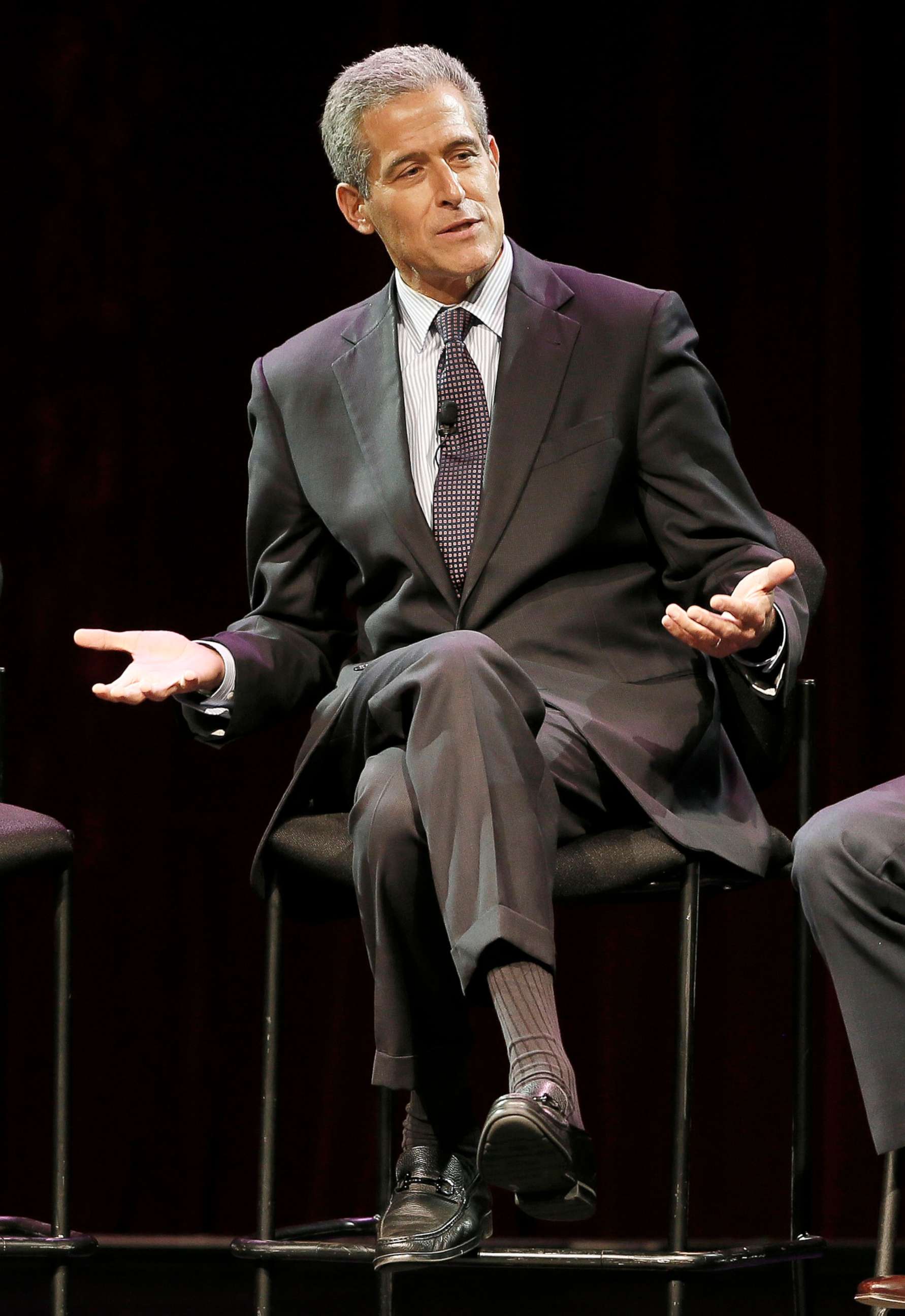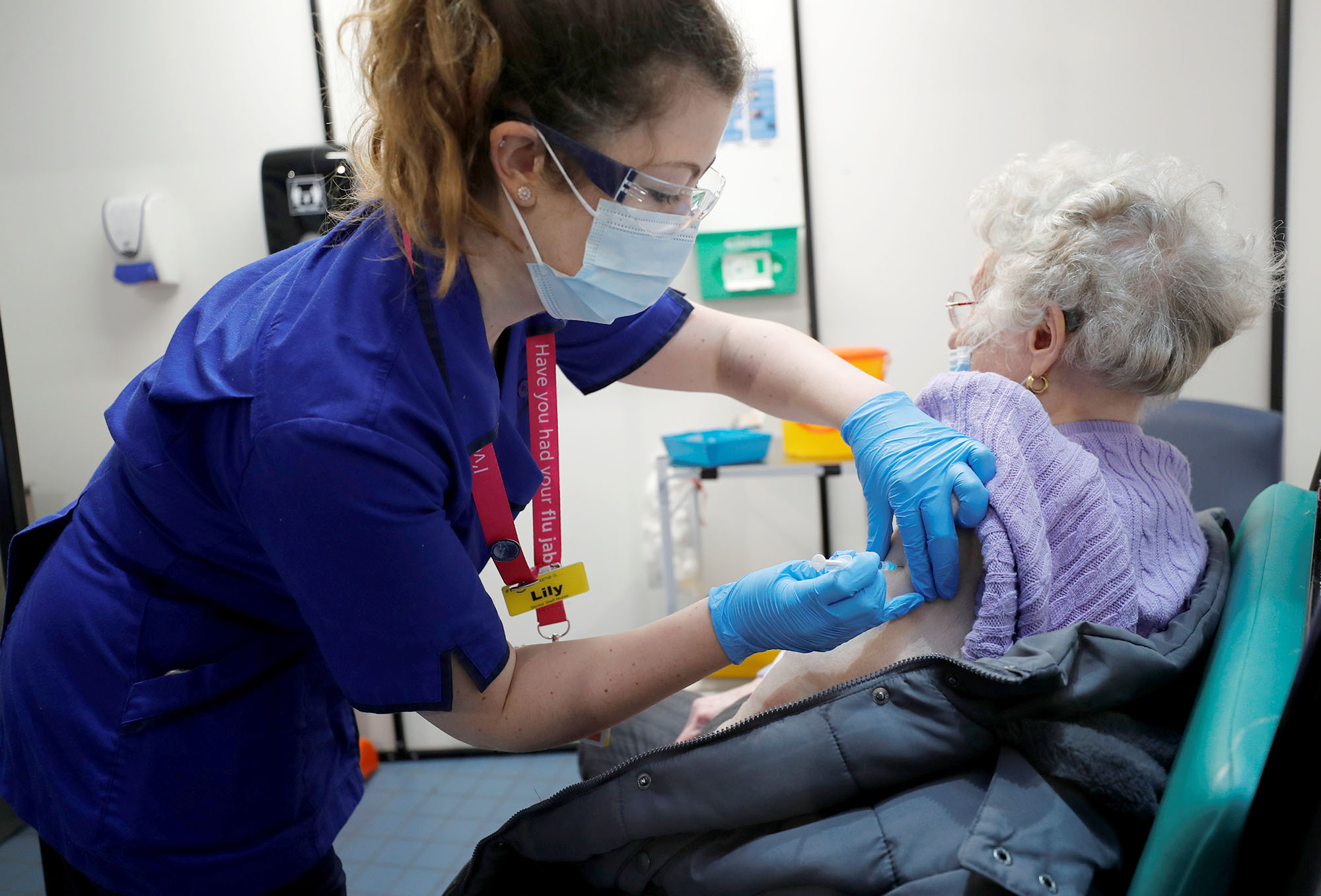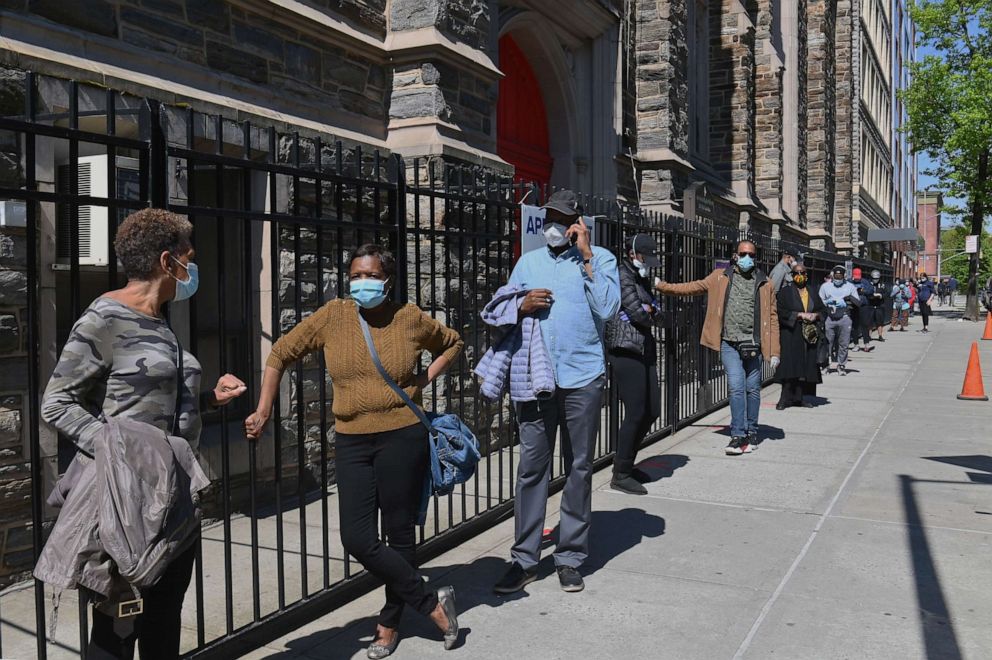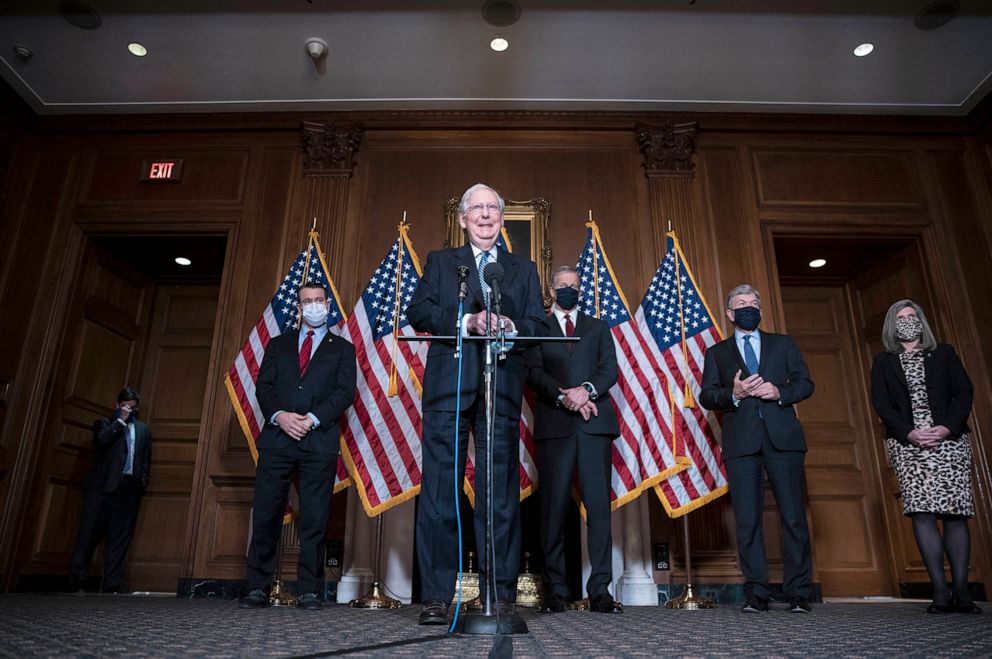Pressure won't help build vaccine trust: OPINION
Transparency, patience and vigilance are the best Rx to improve uptake.
Dr. Richard E. Besser is a physician, president and CEO of the Robert Wood Johnson Foundation in Princeton, New Jersey, the former acting director of the Centers for Disease Control and Prevention and ABC News’ former chief health and medical editor.
As a pediatrician, I know that nothing I do has more of an impact on the health of children in my care than ensuring they are vaccinated fully and on time.
Early in my career, my approach was to tell vaccine-hesitant parents that if they didn’t want their kids to get shots, they should probably find another pediatrician. I soon realized this stance didn’t do much to move the needle. Over time, and with experience, I instead began to work with parents to hear their concerns and move toward a place of mutual understanding and, ideally, full vaccination. Listening, I found, could be more effective than talking.

Those lessons -- and my time leading the Centers for Disease Control and Prevention in the earliest days of the H1N1 pandemic in 2009 -- resonate today as the nation is about to embark upon the most challenging vaccination campaign in U.S. history at a time when vaccine hesitancy is still dangerously high and COVID-19 cases, hospitalizations and deaths are rising.
The FDA’s independent scientific advisory panel has determined the Pfizer/BioNTech vaccine is safe and effective, and voted resoundingly in favor of an Emergency Use Authorization (EUA), which the FDA subsequently issued just days ago. With vaccine delivery and distribution beginning, we must patiently and deliberately engage with the tens of millions of Americans who have real questions and concerns about any coronavirus vaccine.
I have great trust in the advisory panel and the FDA, and was pleased to see that their deliberations and recommendations were transparent and rooted in science. As a result, I would recommend the vaccine to my parents, my patients’ families, and I will enthusiastically get one myself. We must await the results of anticipated studies in children before the FDA decides whether to recommend it for anyone younger than 16.

Now, the federal government has work to do, partnering with states and localities to ensure that the infrastructure and supports are in place so that a person’s ability to get vaccinated is not determined by one’s race, income or privilege. We cannot continue to accept the status quo of this pandemic: communities of color and essential lower-income workers paying the greatest price in lives and livelihoods.
More must happen. Americans have made it clear that the FDA’s stamp of approval, however important, is not enough. Neither are endorsements from public health leaders. This is why our next greatest challenge is to shift vaccine hesitancy to vaccine acceptance. Americans want to protect themselves and their loved ones during this pandemic. So we should listen when they ask questions about vaccines that were developed in record time, under Operation Warp Speed pressures, during a pandemic in which politics and misinformation have undermined trust in science, vaccines and public health.
Doubts exist in every state and in every community, but vaccine hesitancy has been, and still is, most pronounced in communities of color that have borne the brunt of this pandemic because of this nation’s legacy of structural racism. This deep-seated mistrust is informed by a history of inequitable care and abuse.

Today is a time to listen rather than preach, and at this critical moment, it’s a time to act. The solutions must come from within each community, and the messengers must be that community’s trusted voices including faith leaders, medical practitioners and community organizers. Congress must provide additional funding to fiscally-strapped states and localities to ensure they can deploy not just the vaccines themselves, but provide outreach and communications support to trusted community groups to help build trust in the pandemic’s hardest-hit places.
We will continue to learn more about approved vaccines even as vaccinations get underway; additional efficacy studies and ongoing monitoring for safety also will be essential to address people’s fears. Those reluctant to get a COVID-19 vaccine must be heard, and government at all levels must commit to full transparency today and in the months ahead.
We’ve already seen how organizations across the United States are rallying to this effort, and I’m hopeful that a nation that has been deeply divided in 2020 can use this moment to come together for this great cause. The organization I lead, the Robert Wood Johnson Foundation, is providing grant support across a range of COVID-19 vaccine projects. These include supporting state and territorial health officials as they address vaccine hesitancy issues, funding efforts to inform policy recommendations intended to earn trust among communities of color, and helping to fund national research and communications so that more equitable and informed vaccination decision-making will serve our diverse communities. All such efforts -- including the ones I cite here -- must include the communities most affected by these health and economic challenges in an effort to lift up the solutions to the problems they have identified.

Finally, we must enter what we all hope is the final chapter of this pandemic with humility and a sober understanding of what we face. The majority of Americans are still vulnerable to COVID-19, and we are heading into a grueling few months -- even if vaccinations begin tomorrow. The virus is raging, and significant vaccine hesitancy means that we should cast aside the quixotic expectation that a vaccine will be an overnight panacea rather than what it is: an important step in our long journey.
The individual and collective decisions we make over these next few weeks and months will determine whether our neighbors -- including first responders and essential workers -- live or die. We must continue following public health protocols -- wearing masks, socially distancing and washing hands — well into 2021, whether you’re vaccinated or not.
Congress also must approve another stimulus package that helps people make the right choices in the months ahead by funding paid sick leave, putting cash in people’s pockets, providing rental assistance and extending moratoriums on evictions and mortgage foreclosures. After all, CDC guidelines are only as effective as people’s ability to follow them.
As I learned back in my San Diego pediatrician’s clinic nearly 30 years ago, sometimes one of the greatest tools of a public health practitioner is the willingness to listen. A vaccination campaign that meets people where they are, hears their concerns and values their too-often painful history -- an effort that listens -- is what our nation needs today.



